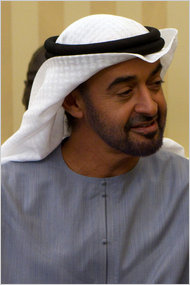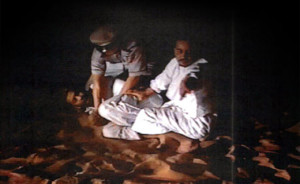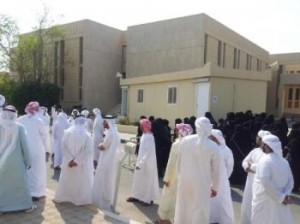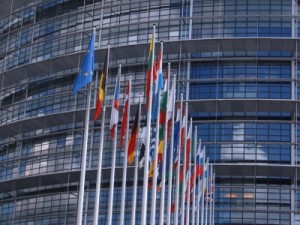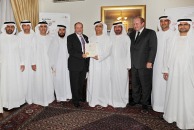ENFORCEMENT OF UAE JUDGMENTS:
TRANSNATIONAL LITIGATION AND ARBITRATION
Help us reach our goals by making a contribution to enforce the UAE Judgment(s)
The petitioner, who is a UAE torture survivor of inside the regime’s brutal prison in Abu Dhabi, United Arab Emirates and most importantly a THREE times of ‘Judgment Creditor’ from the Legal Courts of Abu Dhabi, and still frustrated in the course of enforcing his judgments. He is now aimed to take his case to the next level of courts, the “International Court of Justice and Arbitral Tribunals”.
We need your active support to expose the debtors who hide Judicial decisions, commit fraud and other henious acts to avoid honoring their obligations. …
Please visit “A PORTFOLIO OF UAE JUDGMENTS FOR SALE!??
Agreement between the Republic of India and the United Arab Emirates (UAE) Done at New Delhi on the 25th October, 1999.
July 10, 2012 New Delhi

AGREEMENT BETWEEN
THE REPUBLIC OF INDIA
AND
THE UNITED ARAB EMIRATES
ON
JURIDICAL AND JUDICIAL COOPERATION IN CIVIL AND COMMERCIAL MATTERS FOR THE SERVICE OF SUMMONS, JUDICIAL DOCUMENTS, COMMISSIONS, EXECUTION OF JUDGEMENTS AND ARBITRAL AWARDS.
The Government of the Republic of India and the Government of the United Arab Emirates, hereinafter referred to as the Contracting Parties;
Being desirous of strengthening the bonds of friendship between the two countries and promoting fruitful cooperation in the judicial and legal spheres;
Recognising the need to facilitate the widest measure of legal assistance in civil and commercial matters;
HAVE AGREED as follows:
SCOPE OF APPLICATION
Article I
1. The Contracting Parties shall grant each other under this Agreement the widest measure of mutual legal assistance in civil and commercial matters in accordance with their national laws.
2. Assistance under this Agreement shall apply in:
a. service of summons and other judicial documents or processes;
b. the taking of evidence by means of Letters of Request or commissions;
c. execution of decrees, settlements and arbitral awards.
3. This Agreement shall be without prejudice; to any rights and obligations of the Parties pursuant to other treaties or arrangements.
4. This Agreement shall apply to any requests for mutual legal assistance relating to any civil or commercial matter arising either prior to or after its entry into force.
CENTRAL AUTHORITIES AND AUTHENTICATION OF DOCUMENTS
Article II
1. Requests for legal assistance shall be made through the Central Authorities of the Contracting Parties.
2. In the Republic of India the Central Authority is the Ministry of Law, Justice & Company Affairs. In the United Arab Emirates the Central Authority is the Ministry of Justice.
3. Unless otherwise stated all the documents in connection with the legal assistance shall be officially signed by the Court under its seal which shall be authenticated by the Central Authority of the Requesting Party.
4. All requests and supporting documents shall be furnished in duplicate and shall be accompanied by a translation into one of the official languages of the Requested Party.
SERVICE OF SUMMONS, JUDICIAL DOCUMENTS AND PAPERS
Article III
1. Summons and other judicial documents in the Contracting Parties shall be served:
i. in the case of India, through the courts in whose jurisdiction the
concerned persons reside;
ii. in the case of the United Arab Emirates, through the Ministry of
Justice.
2. The service of summons and other judicial documents shall be effected in accordance with the procedure provided for in the laws of the Requested State, or by a particular method desired by the Requesting State, unless such a method is incompatible with the law of the Requested State.
3. The summons and other judicial documents served in pursuance of this Agreement shall be deemed to have been served in the territory of the Requesting State.
4. The provisions of paragraph 1 of this Article shall not preclude the right of the Contracting Parties to effect such service, through its diplomatic or consular representatives, of summons and other judicial documents on its nationals residing in the territory of the other Contracting Party without application of any compulsion. Service in such cases shall entail no responsibility for the State of accreditation.
5. Subject to the provisions of paragraph 2 of this Article, summons and other judicial documents may be served directly through postal channels or by delivery to an addressee who accepts it voluntarily without application of any compulsion.
6. Any claim about the addressee being a national of the State in whose jurisdiction the service is to be effected shall be determined in accordance with the law of the State.
Article IV
The request for the service of summons and other ;judicial documents shall furnish all particulars concerning the name and title, place of residence or ;business of the addressee and a list of documents and papers to be served on that person. Where any special mode of service is desired, this should also be indicated in the request.
Article V
1. A request for the service of summons and other judicial documents, which is in conformity with the provisions of this Agreement, may not be refused, unless the Requested Party considers that compliance with the request would infringe its sovereignty, security or public policy.
2. Service may not be refused on the ;ground that the request does not show sufficient legal grounds supporting the merits of the case.
3. Whenever the service is not effected, the Requested Party ;shall forthwith notify the Requesting Party of the reasons therefore.
Article VI
1. The competent authority in the State requested shall serve the said documents and papers in accordance with the laws and rules applicable in this regard. No fees and costs may be levied for effecting such service.
2. Service may be effected in a special mode or manner specified by the Requesting Party, provided that it does not contravene the laws of the Requested State and further subject to the payment of costs of such special mode of service.
Article VII
1. The powers of the competent authority in the Requested Party shall be limited to the delivery of the judicial documents and papers to the addressee.
2. Delivery shall be proved either by the signature of the addressee on the copy of the judicial document or paper, or by a certificate issued by the competent authority stating the name of the addressee, the date and mode of delivery, and where such delivery could not be effected, the reasons for such non-delivery.
3. a copy of the judicial documents or paper signed by the addressee or a certificate proving delivery shall be sent to the requesting authority through the Central Authority.
TAKING OF EVIDENCE
Article VIII
1. The judicial authorities of a Contracting Party may in accordance with the provisions of the law of that Party, request for the taking of evidence in civil and commercial matters by means of Letters of Request addressed to the competent judicial authorities of the other Party.
2. For the purpose of this Agreement, taking of evidence shall be deemed to cover:
a. the taking of the statements, on oath or otherwise, of a witness;
b. the submission of oath to a witness, with regard to any legal
proceedings; and
c. the production, identification or examination of documents, records,
samples relevant to the evidence requested and submitted by the person whose evidence is taken under sub-paras (a) & (b) above.
3. A Letter of Request shall specify:
a. the judicial or other competent authority requesting the evidence;
b. the nature of the proceedings for which the evidence is required and all
necessary information related thereto;
c. the names and addresses of the parties to the proceedings;
d. the evidence to be obtained; and
e. the names and addresses of the persons to be examined.
4. Where deemed necessary, the Letters of Request shall be accompanied by a list of interrogatories to be put to the witnesses or other persons involved or a statement of the subject matter about which they are to be examined and the documents relevant to such evidence or statement.
5. The Letters of Request shall indicate whether the evidence required is to be taken on oath or affirmation.
Article IX
The judicial proceedings performed by way of a Commission in pursuance of the provisions of this Agreement, shall have the same legal effect as if it is performed by a competent authority in the Requesting State.
Article X
1. The competent authorities of the Requested Party shall execute the Letters of Request in accordance with the provisions of its own laws and obtain the evidence required by applying the same methods and procedures as are permissible under its laws, including the same appropriate methods of compulsion.
2. The Requested Party shall follow any special method or procedure which has been expressly specified by the Letter of Request insofar as it is not incompatible with its laws and practices.
3. The Letters of Request shall be executed as expeditiously as possible.
4. The Requesting Party shall, if it so desires, be informed of the time when, and the place where, the proceedings will take place, in order that the parties concerned, and their representative, if any, may be present. This information shall be sent directly to the parties or their representatives when the Requesting Party so request.
5. When the Letter of Request has been executed, the necessary documents establishing its execution shall be sent to the Requesting Party.
6. In every instance where the Letter of Request is not executed in whole or in part, the Requesting Party shall be informed immediately and advised of the reasons.
Article XI
The execution of a Letter of Request may be refused only to the extent that;
a. The execution of the letter does not fall within the functions of the
judiciary; or
b. the Requested State considers that its sovereignty or security would be
prejudiced by its execution.
2. Execution may not be refused solely on the ground that under its internal law the Requested Party claims exclusive jurisdiction over the subject matter of the action or that its internal law would not admit a right of action on it.
Article XII
The execution of Letters of Request and the taking of evidence by the Requested Party shall not give rise to any reimbursement of charges, expenses or costs, under whatever description by the Requesting Party. However, the Requested Party shall have the right to seek reimbursement of:
a. any expenses and charges paid to the ;witnesses, experts or
interpreters;
b. any costs incurred to secure the attendance of witnesses who have not
appeared voluntarily; and
c. any costs and expenses occasioned by the use of a special procedure on
request.
Article XIII
A diplomatic officer or Consular Agent of either Contracting Party may, in the territory of the other Party, take the evidence, without compulsion of nationals of the Party which he represents, in aid of judicial proceedings commenced in the courts of the Contracting Party which he; represents.
Article XIV
A person duly appointed as a Commissioner by the courts of either Contracting Party may, without compulsion, take evidence in the territory of the other Contracting Party, in accordance with the laws of that Party.
Article XV
1. Each of the Contracting Parties shall, in accordance with its laws, recognise and/or execute decrees passed by the Courts of the other Contracting Party in civil, commercial and personal matters and by criminal courts in civil matters.
2. The term ‘Decree’ as used in this Agreement, whatever its designation, means any decision rendered in judicial proceedings by a competent court of the Contracting States.
3. This Agreement shall not apply to interim or provisional ;measures, except matters relating to taxation and allowances.
Article XVI
In disputes involving the question of capacity or status of a person, the courts of the State of which that person is a national at the time of institution of the suit shall be competent in those matters.
Article XVII
The courts of the State where immovable property is situated shall be competent to determine the rights connected with such property.
Article XVIII
In matters other than capacity or status of a person or immovable property, the courts of a Contracting Party shall have jurisdiction in the following cases:
a. If the defendant has his domicile or residence in the territory of that
State at the time of institution of the suit
b. or the defendant has at the time of institution of the suit, a place or a branch of commercial or industrial nature or works for gain in the territory of that state, and the suit relates to such activity
c. or by an express or implied agreement between the plaintiff and the defendant, the contractual obligations giving rise to the litigation are or have to be performed in the territory of that State
e. or the defendant expressly or impliedly submitted to the jurisdiction of the courts of that State, and the law of that State allows such submission
f. or any application for provisional measures, if the courts of such State are deemed competent to hear the principal dispute, by virtue of; the provisions of this Agreement.
Article XIX
Subject to the provisions of this Agreement, the courts of the State requested to recognise or execute a decree shall, when examining ;the ;grounds of jurisdiction exercised by the Courts of the other contracting State, be bound by the facts stated in that decree and on which jurisdiction is based, unless the said decree had been passed in absentia.
Article XX
A decree shall not be recognised or executed in the following cases:
a. if it is not conclusive and executable;
b. or it has not been pronounced by a Court of competent jurisdiction;
c. or it has not been given on ;the merits of the cases;
d. or it appears on the face of the proceedings to be founded on an incorrect view of international law or a refusal to recognise the law of the Requested Party in cases in which such law is applicable.
e. or the proceedings in which the judgement was obtained are opposed to natural justice;
f. or it has been obtained by fraud;
g. or it sustains a claim founded on a breach of any law in force, or is contrary to the constitutional rules or the principles of public order in the Requested State;
h. or it contravenes the rules concerning the legal representation or persons suffering from lack of capacity in the Requested State;
i. or it is passed in absentia and the defaulting party was not duly summoned in accordance with the rules applicable in his country;
j. or the dispute in which the decree was passed is pending in a suit before one of the courts in the Requested State, between the same parties and involving the same cause of action, and that suit was raised before one of the courts of the latter State, at a date prior to the raising of that dispute in the court of the State which passed the decree, and provided that the court before which the suit was raised, is competent to here and decide upon it.
Article XXI
Procedures relating to recognition or execution of a decree shall be subject to the laws of the Requested State.
Article XXII
1. The competent judicial authority in the State requested to recognise or execute a decree shall, without reviewing the merits of the case, confine itself to ascertaining the compliance of the decree with the conditions provided for in this Agreement.
2. The competent judicial authority in the Requested State shall, when necessary, in executing the decree, take the necessary action to notify the decree in the same manner as it would have done had it been passed in its own territory.
3. The order for execution may be made for the whole or part of the decree, if the execution of such part of the decree is serverable.
Article XXIII
The Central Authority of the Contracting Party requesting recognition or execution of a decree in the other Contracting Party, shall submit the following:
a. an official copy of the decree.
b. a certificate showing that the decree is final and executable, unless that is provided for in the decree itself.
c. in case of a decree in absentia, an authenticated copy of the summons or any other document showing that the defendant was duly summoned.
d. if the request is only for execution of a decree, an official copy in properly executable form.
Article XXIV
1. The settlement of a claim which is made and filed before a judicial authority of either Contracting Party competent to consider the claim according to its national law shall be recognised and enforced in the territory of the other Contracting Party, after ascertaining that it is executable in the State in which it was concluded, and that it does not contain any provisions contravening the constitutional rules or public policy of the Requested State.
2. The party requesting recognition or execution of a settlement must submit an official copy and a certificate from the judicial authority stating the extent, if any, to which the decree has been satisfied or adjusted.
ARBITRAL AWARDS
Article XXV
1. Without prejudice to the provisions of Article XXIV and XXVI of this agreement, arbitral awards given in the territory of either Party shall be recognised and enforced in the other Party provided that:
a. the award of arbitrators is based on a written agreement of the parties to the dispute to submit to arbitrators for determination of any specific or future dispute arising out of legal relations.
b. the award is made on matters arbitrable according to the law of the State requested to recognise its enforcement unless it is contrary to the public policy of the Requested State.
2. The party requesting the recognition and enforcement of an award, shall produce a copy of the award accompanied by a certificate of the competent judicial authority in the Requesting State to the effect that the award is executable.
3. A certified copy of the Agreement between the disputant Parties empowering the arbitrators to decide the dispute shall also be produced.
RATIFICATION AND TERMINATION
Article XXVI
This Agreement is subject to ratification and the instruments of ratification shall be exchanged as soon as possible. It shall come into force on the date of exchange of instruments of ratification.
Either of the Contracting Parties may terminate this Agreement by giving six months notice thereof through diplomatic channels. Upon the expiry of such notice, the Agreement shall cease to have any force or effect.
In witness whereof, the undersigned, being duly authorised thereto by their respective governments, have signed this Agreement.
Done at New Delhi on the 25th October, 1999 in two originals each in Hindi, Arabic and English languages, each text being equally authentic. However, in case of difference, the English text shall prevail.
FOR THE GOVERNMENT OF FOR THE GOVERNMENT OF
THE REPUBLIC OF INDIA THE UNITED ARAB EMIRATES
Download the Agreement INDIA-UAE 1999 (PDF 105KB)
http://www.judgmentforsale.com/publish/india-uae-agreement-ministry-law-justice-1999.pdf
Principal Sources:
http://lawmin.nic.in/treaty/uae.htm
http://www.judgmentforsale.com/articles/
 The representation to the Government of India sheds light on the active involvement of this petitioner, a THREE times of Judgment Creditor (winner) from the Legal Courts of Abu Dhabi, in the process of getting justice and its far-reaching consequences. Visit the featured report: “The legacy of torture in the UAE; you may have never heard of”. Full Text
The representation to the Government of India sheds light on the active involvement of this petitioner, a THREE times of Judgment Creditor (winner) from the Legal Courts of Abu Dhabi, in the process of getting justice and its far-reaching consequences. Visit the featured report: “The legacy of torture in the UAE; you may have never heard of”. Full Text

